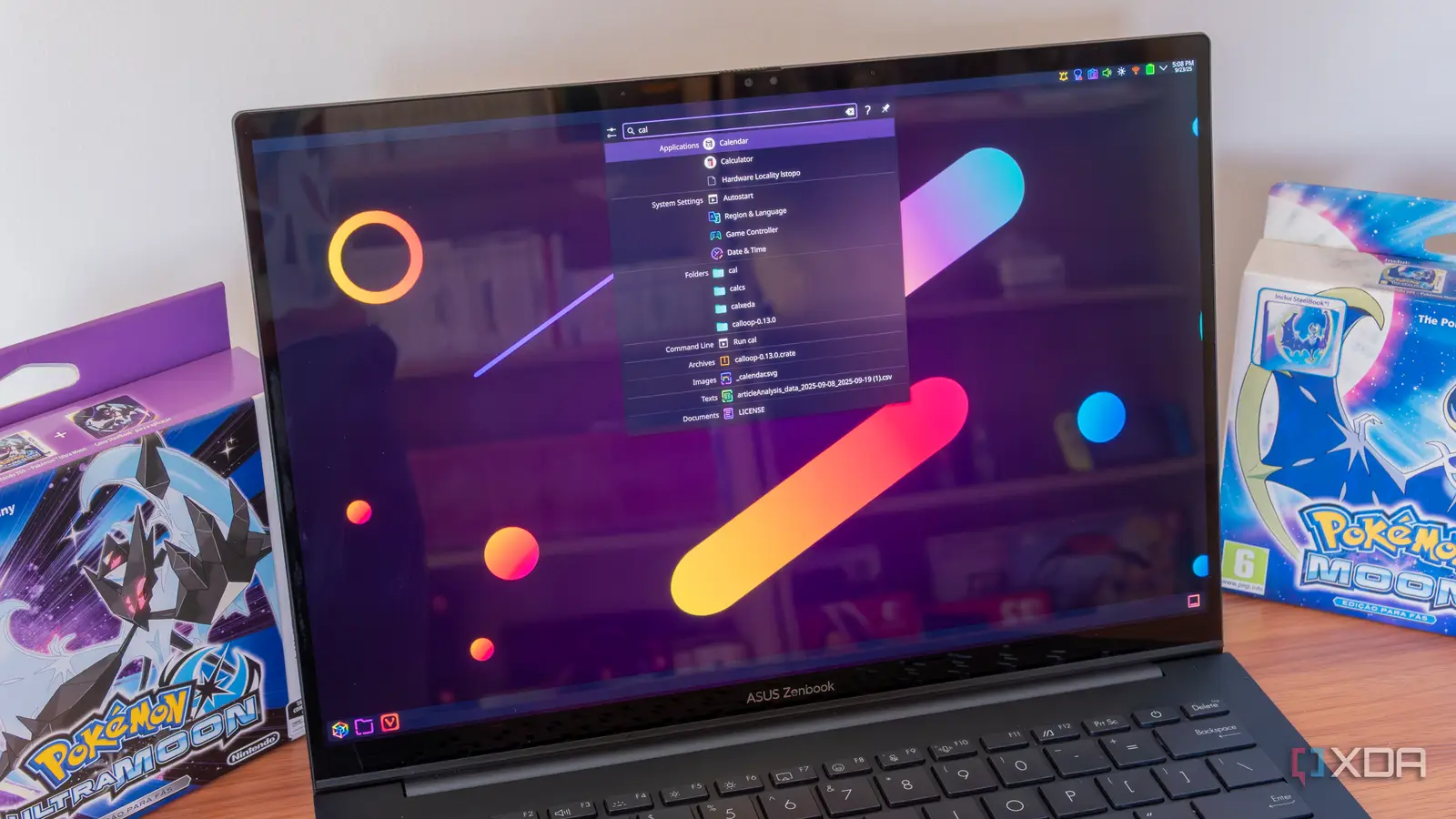
I’ve talked about Raycast a few times already here on XDA. Since I discovered this app on my Mac Mini, it’s been an absolutely game-changer, saving me time and frustrations with many of the tasks I need on a daily basis. Raycast was exclusive to macOS for a long time, but recently, a beta for Windows launched, and much like my colleague Adam Conway, I love it there too.
But maybe I’m greedy, and now that I’d much rather use Linux than Windows 11, I can’t help but ask for even more. Now that Raycast for Windows is starting to get ready for launch, I want it to come to Linux next.
What is Raycast?
The centerpiece of my Mac (and now Windows)
The concept behind Raycast isn’t a completely new one. It is, essentially, a keyboard-based launcher, similar to the likes of Flow Launcher and PowerToys Run on Windows, Spotlight on macOS, or KRunner on some Linux distros. You can press a keyboard shortcut of your choosing and a search bar appears, allowing you to open any of your apps, search your files, and perform a variety of other tasks, depending on the launcher you’re using and the plugins you have.
Raycast is easily my favorite of the bunch, though, because not only is it extremely fast, it’s also highly configurable, it learns from my habits, and it has the most powerful plugin/extension ecosystem I’ve ever seen in an app for this kind. Right out of the box, Raycast is already very powerful. It can perform calculations, convert units, launch my apps, put my computer to sleep, change the volume, and more.
Two of my favorite features, which I talked about in a dedicated article recently, are the clipboard history and emoji selector. Both on Windows and macOS, these two features are huge leaps over the built-in features that offer the same functionality. It’s faster, it saves my clipboard history for a lot longer, and it has a fast and reliable search feature for both emoji and snippets from my clipboard history. These features increase my productivity immensely, particularly the clipboard history. Frankly, those things alone make it worth having.
Incredible customization and extensions
Especially on macOS
What makes Raycast truly special, however, is its flexibility, not only by nature of its own design, but also thanks to the vibrant ecosystem of developers that have created hundreds of fantastic extensions for it. Let’s start with that last part. Going to the online Raycast Store, where all the extensions are listed, we see there are 232 pages of extensions. That adds up to 2313 extensions available for macOS, and it’s easy to see why so many exist, considering the most popular ones have hundreds of thousands of downloads.
I have only installed a handful of these, but I already have a ton of useful tools here. I’ve installed extensions for searching YouTube and downloading videos from it (mostly when I need some footage for my own videos), an extension that lets me easily convert images to a different format, extensions that integrate with Home Assistant, and even one that find information about Pokémon (the virtual creatures, not the games themselves). When I’m playing a game, this information is actually quite helpful for understanding the sometimes hidden stats and information about each creature.
Over on Windows, the selection of extensions is more limited due to the app being a relatively early beta, but there are already some great ones, including the aforementioned YouTube-related extensions. It’s only bound to get better as Raycast approaches a full release on Windows.
What makes this come together perfectly, though, is how easily you can customize Raycast to be even more usable. From the built-in extensions to any third-party ones, you can assign shortcuts to make them easier to access, and you can do it in two ways. You can create a shortcut, which triggers a specific extension when you type said shortcut into the search bar, or you can create a hotkey, which directly takes you to an extension without having to open Raycast first. Making all of these capabilities accessible with a keyboard shortcut is a huge time saver and a big benefit for Raycast.
KRunner just isn’t there yet
It’s a solid foundation, but it needs more
On Linux, launchers like this also exist, and one of the more popular choices is KRunner, which is often included with the KDE Plasma desktop environment. KRunner is a solid offering of this kind, but it has some shortcomings. For one, it’s not particularly fast, and results can update a fraction of a second before you press Enter, which could lead you to open the wrong thing. It does have a lot of built-in plugins, including a calculator and unit converter, but the somewhat slow response makes it not ideal.
KRunner also just lacks the support it needs to be as good as Raycast. There are a few plugins available, but I didn’t find many that were particularly interesting. Not even a YouTube download tool, which I would have thought to be quite popular. It’s probably not surprising, considering a lot of the extensions I did find didn’t have a ton of downloads, either.
This app is also held back a bit by the openness of Linux and the sometimes disjointed experience it produces. KRunner is part of KDE Plasma, but it can be installed on different distros. The problem is using it on different distros can be unreliable. I’m using Arch Linux, and when I head into the KRunner plugin store, I’m immediately warned that extensions aren’t tested by KDE or Arch Linux. And when I click Install, I see multiple files available for the same extension, with no attempts at detecting what package my PC might need. And, of course, trying to install a few extensions resulted in failures each time.
If Raycast were to come to Linux, I have confidence that it would be implemented in a way that actually works and does so much more universally than what KRunner can do. A flatpak package with an extension ecosystem that isn’t tied to a particular distro or desktop environment would be a dream come true, and I can only hope that happens.
It will be a while
Raycast for Windows is far too fresh
As much as I may daydream about this idea, I can’t imagine Raycast will make its way to Linux anytime soon. The expansion to Windows only began a couple of months ago, and the beta program is only available via invitation. It will take some time for that to get to a place where the developers can start thinking about expanding again.
That’s compounded by the fact that Windows and (to a lesser extent) macOS still obliterate Linux in terms of popularity among desktop users. The work required to bring Raycast to Linux would likely not be trivial, and the audience may not be there to justify it, especially so quickly after the rollout of the Windows version.
Still, if the developers managed to achieve wide compatibility with most distros, and considering the increased interest in Linux as of late, I’m sure there would be some excitement around a Linux launch. I certainly would be shouting from the rooftops (figuratively, of course) about it.
I’ll keep hoping
For the time being, all I can do is hope this will happen soon. In the meantime, KRunner will have to do, and to be fair, the search feature built into the KDE Plasma app launcher is already solid. It’s not quite as great as I’d like it to be, but Raycast isn’t enough to get me to use Windows in the long term. If you’re not planning to switch to Linux, though, you can check out Raycast below.



